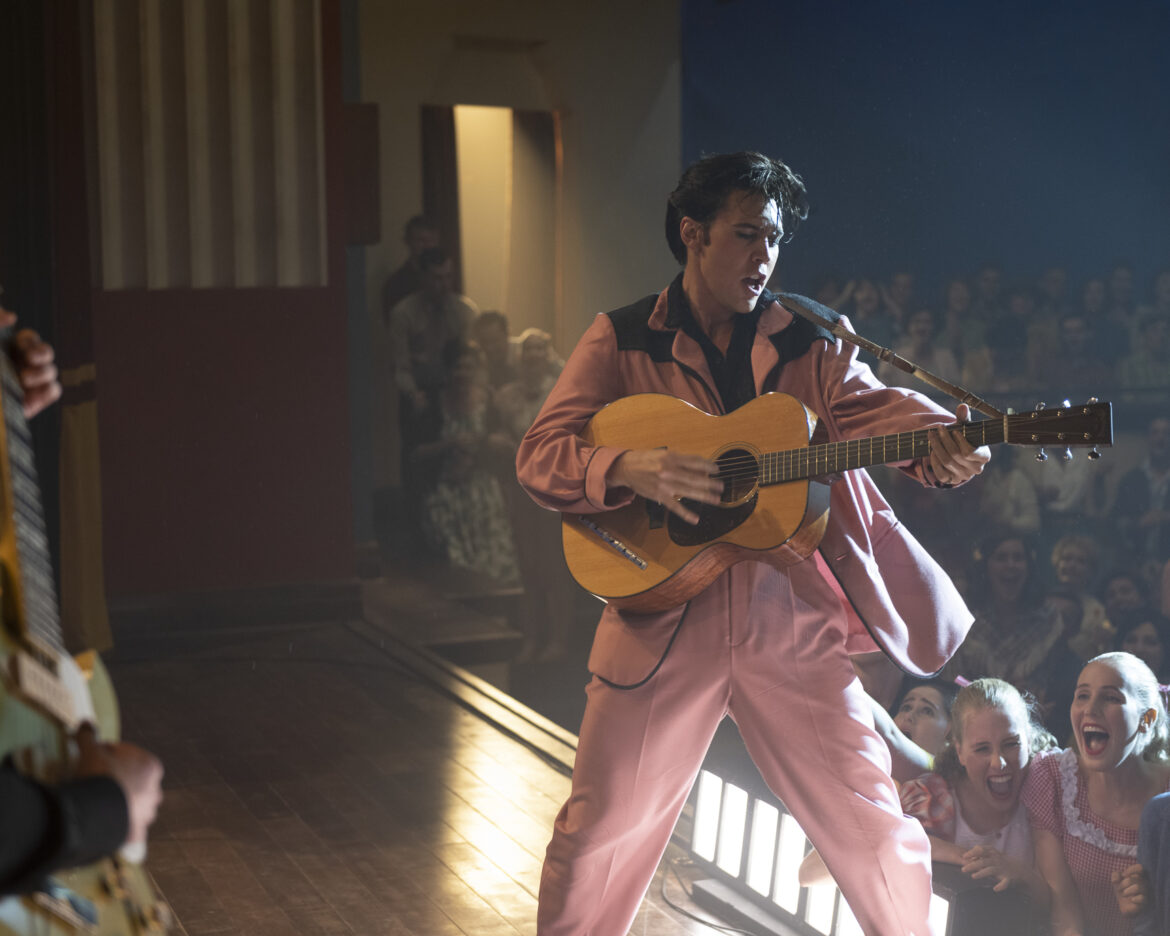By Kirsten Coachman
“What are they hollering at?” asks Austin Butler’s young Elvis Presley huddling up with his fellow musicians mid-performance of “Baby Let’s Play House” as women of all ages in the audience at the Louisiana Hayride begin to shriek and scream uncontrollably.
“The wiggle!” a bandmate exclaimed.
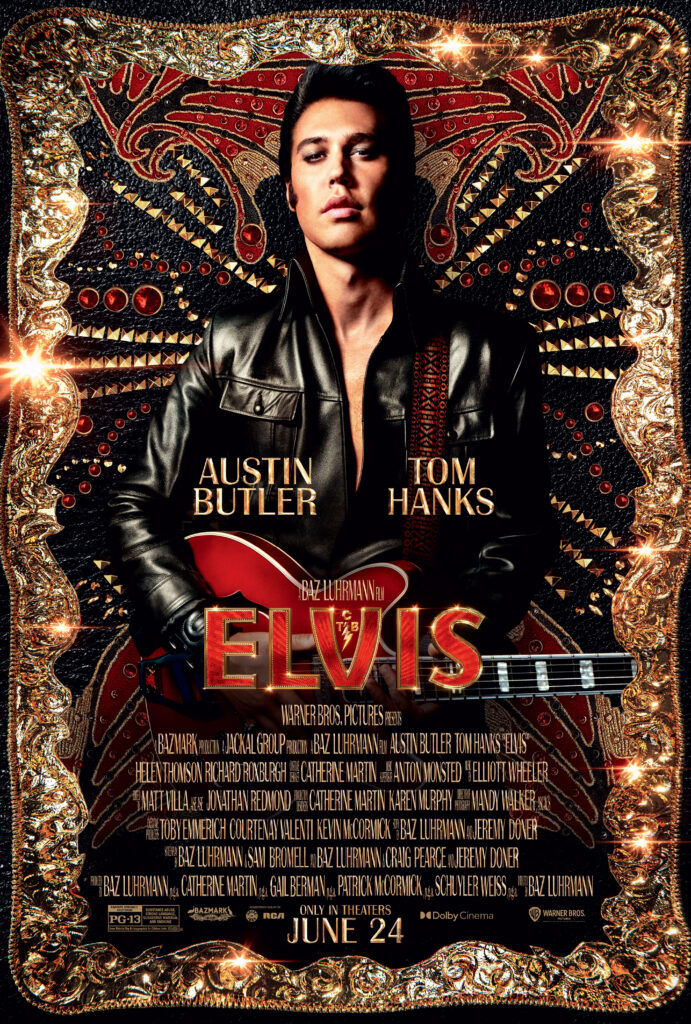
The move that would eventually capture the attention of audiences across America through their televisions had one individual, Presley’s manager Colonel Tom Parker (Tom Hanks, “Cast Away”), seeing nothing but dollar signs.
In Baz Luhrmann’s “ELVIS,” the writer, director, and producer provides the audience a front-row seat to the story of one of the best-selling artists of all time as told through the eyes of the Colonel, a longtime carny, who considered the late American icon to be his greatest act. Although the manner in which he conducted his business was unsavory, the grifting Colonel played a huge role in elevating Presley from a household name nationwide to one of the biggest entertainers in the world.
Frenetically paced, the nearly three-hour film covers over 20 years of Presley’s life—from his rise to stardom to his premature death at the age of 42. Luhrmann (“Moulin Rouge!”) draws the audience in with Presley as most vividly remember him: the rollicking, hip-shaking showman that had his fans “all shook up” through a feast of stunning visuals, courtesy of Director of Photography Mandy Walker (“Mulan” [2020]), and an undeniable star-making turn from Butler.
“Ready to fly”
Butler, who was last seen in Quentin Tarantino’s “Once Upon a Time… In Hollywood” in 2019, lays everything on the table with his captivating and layered performance of Presley. The actor, who is singing in the movie—mainly handling young Presley’s vocals—encapsulates the performer’s dynamic, larger-than-life onstage demeanor throughout the film.
A standout moment: the defiant Russwood Park performance of “Trouble” after announcing to his audience, “I’m going to show you what the real Elvis is like tonight!” before giving himself—and his scream-worthy wiggling—over to the music.
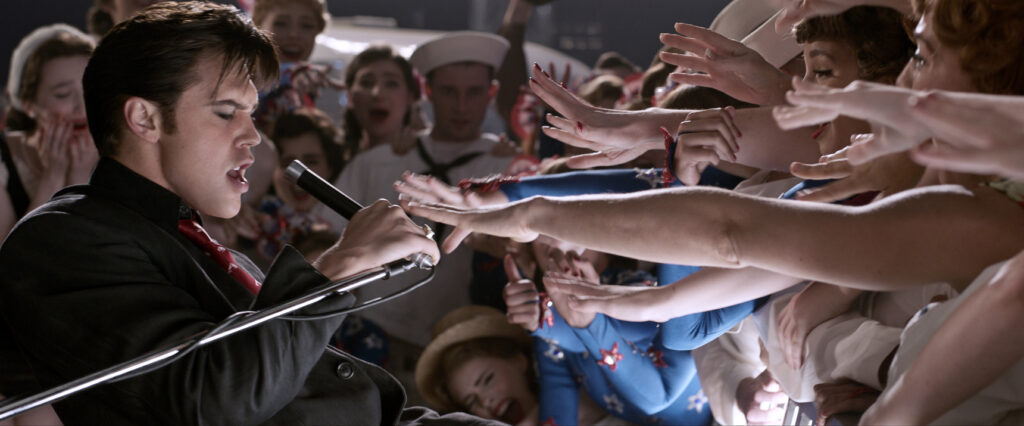
When Presley is away from the stage, Butler brings an earnest sense of vulnerability and tenderness to his character in a way that lets the audience grasp who he was when the rock ‘n’ roll persona was stripped away. Through scenes with Presley’s family, the soft-hearted mama’s boy comes out, and later, while overseas, he’s completely enamored with Priscilla (Olivia DeJonge, “The Visit”).
“What are you going to pay me?”
Perhaps the biggest disappointment of the film is that Hanks as the Colonel doesn’t quite work. On the one hand, it’s refreshing to see the beloved actor in a role like the Colonel, the ill-intentioned force behind Presley’s career. It’s quite something to watch him repeatedly manipulate his act.
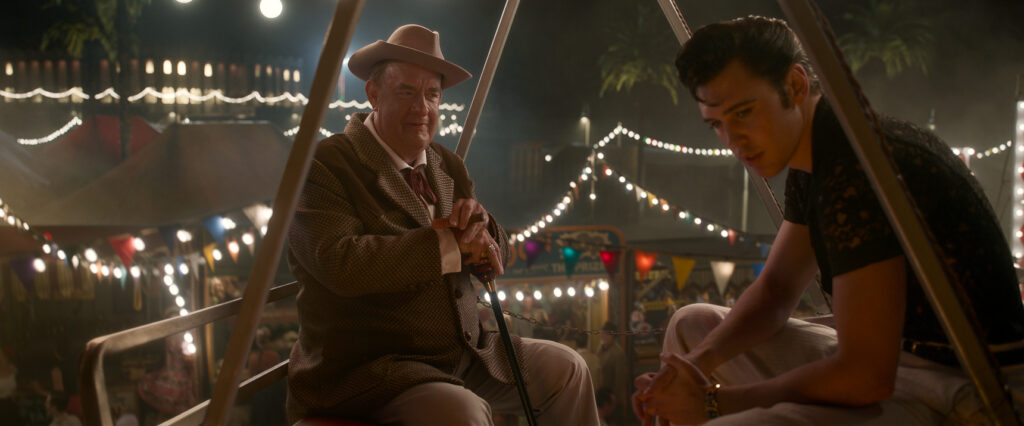
On the other hand, a creative decision, such as the way Hanks doesn’t completely mask his own voice as the Colonel, is a detriment to both his performance and the film, as the actor never fully fades away on the screen. The audience is left with a character that comes across, at times, merely as a villainous version of the actor behind well-executed prosthetics and makeup.
The influences behind the music
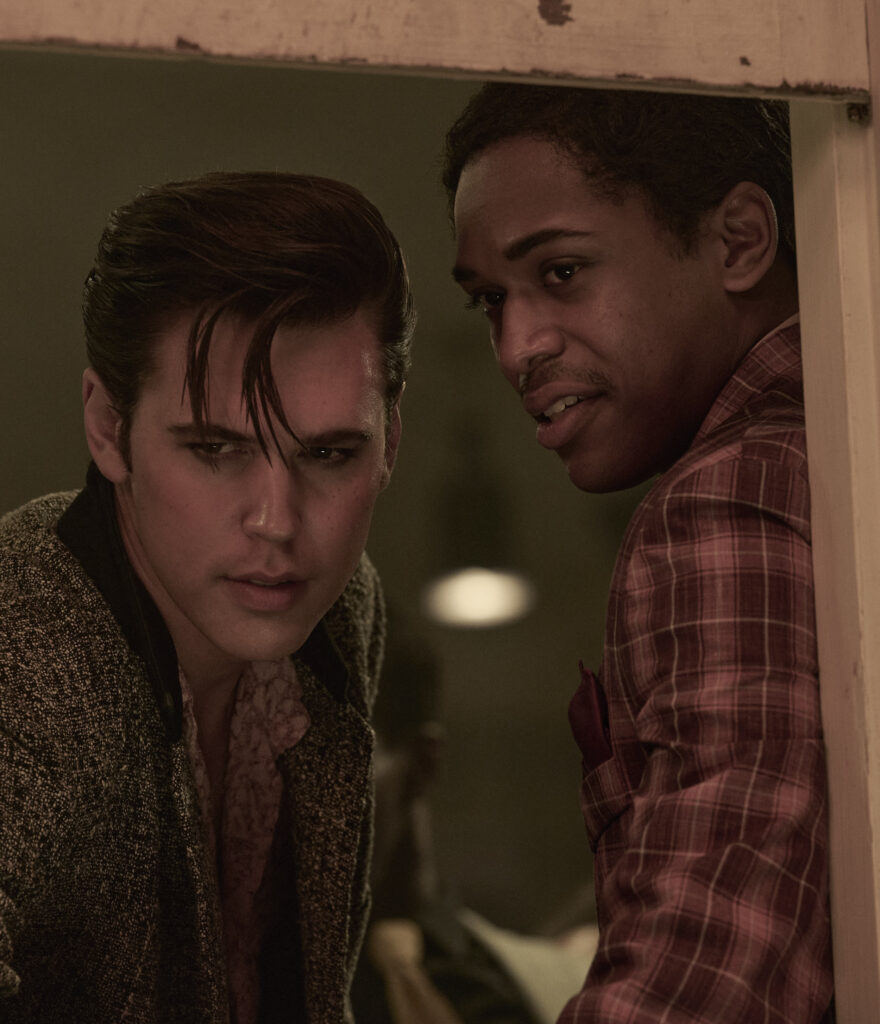
An integral aspect of Presley’s life story that Luhrmann seemingly wanted to be clear about was the inspiration behind his music—an early love of rhythm and blues and gospel music.
The film depicts Presley as a kid growing up in Tupelo, Mississippi, with friends listening outside a local juke joint while Arthur “Big Boy” Crudup (Gary Clark Jr.) performs a bluesy rendition of his song and Presley’s first big hit, “That’s All Right,” on guitar. Moments later, Presley is drawn to a Pentecostal tent and is overcome by the music being performed by a gospel choir.
And it’s not just Crudup’s song that helped put Presley on the map. The film flashes to Big Mama Thornton (Shonka Dukureh) performing her song, “Hound Dog,” as Presley is readying his own performance of the song on “The Milton Berle Show.”
It would not be entirely surprising to learn that these particulars of Presley’s music history were unknown to some fans, especially those who may have been introduced to him simply as “The King of Rock ‘N’ Roll.” Luhrmann providing context for the music and musicians that shaped his sound is necessary to have a better understanding of Presley and the music that meant the most to him.
An ongoing legacy
In telling Presley’s story, Luhrmann has crafted a film in a way that only he can: bold, in-your-face storytelling that draws a line between the past and present, using impressive set-pieces for dazzling musical numbers, adding to an already flourishing legacy of the legendary performer. The filmmaker managed to take what people know—the hit songs, the dance moves, and the Las Vegas of it all—and present a fresh perspective in what is one of the most entertaining films of the year.
“ELVIS” is now playing in theaters.
